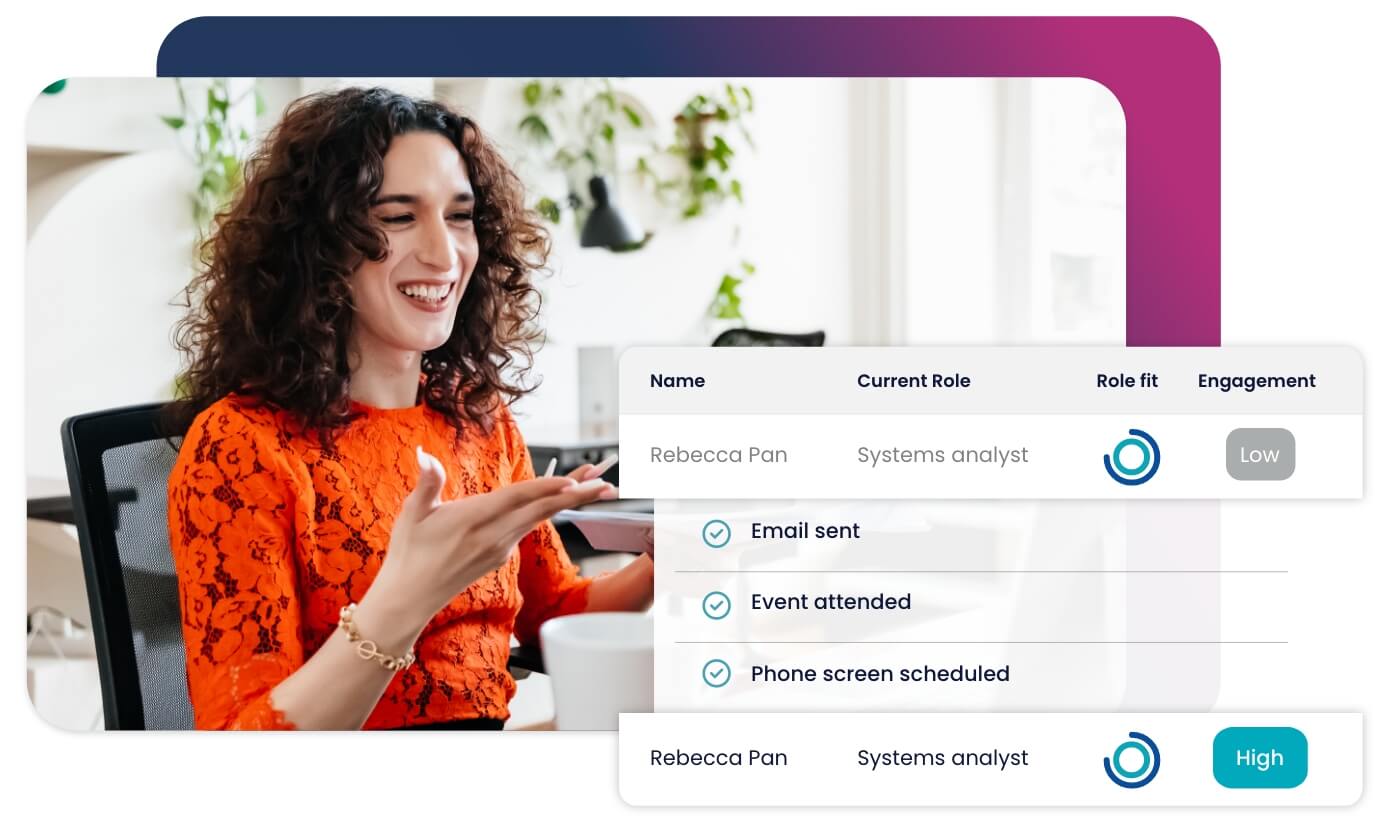





Accelerate hiring key talent to deliver care and exceed patient satisfaction.

Attract skilled candidates, speed up hiring and grow expertise in your workforce.

Simplify recruiting finance and banking talent with a platform for hard-to-fill roles.


Build a talent pipeline that engages and drives your business forward.


See how diverse and global enterprises use iCIMS to employ millions, drive innovation and connect communities worldwide.

Uncover unique market insights, explore best practices and gain access to talent experts across our library of content.


View press releases, media coverage, the latest hiring data and see what analysts are saying about iCIMS.


Streamline your tech stack and take advantage of a better user experience and stronger data governance with ADP and iCIMS.

The combined power of iCIMS and Infor helps organizations strategically align their business and talent objectives.

Our award-winning partnership with Microsoft is grounded in a shared desire to transform the workplace and the hiring team experience.

Our partnership with Ultimate Kronos Group (UKG) supports the entire talent lifecycle by bringing frictionless recruiting solutions to UKG Pro Onboarding.

The year is 1969 in St. Louis, Missouri. Retired U.S. navy pilot Jack Taylor and his team are finalizing plans to take Executive Leasing Co. national. There’s just one small problem: their name is no longer accurate. In addition to leasing, the company sells and rents cars, too. Executive Leasing needs a new name – one that captures the spirit of who they are as a brand.
For that Taylor turned to the aircraft carrier he’d served on as a Hellcat pilot in WWII. Decades later, and with branches on more than 70 U.S. military bases, serving military members and veterans is still core to Enterprise Rent-A-Car’s corporate DNA.
Most companies weren’t founded by veterans. Yet most companies understand the value of hiring military veterans. Here are five ways employers can increase their veteran hires:
1. Look for transferable skills like leadership and communication
As someone who has worked with military veterans in the past, I can tell you there’s a wide range in terms of what gets put on their resumes. Some are geared well for business. Most aren’t.
As a business, be clear on what veterans bring to the table. The vast majority are highly adaptable and excellent lifelong learners. They’re hard workers with strong leadership skills. They’re direct and clear in how they communicate. Most are driven and will continue to work steadily toward an end goal – regardless of the ups and downs along the way.
There are cultural differences between military and civilian work environments that make miscommunication and misunderstanding all too easy. Make sure hiring managers understand what to expect when evaluating veterans for a role. (And be careful about calling out ‘a veteran employee’. Individuals might rather be known for what they are doing now rather than what they’ve done.)
2. Build a career page specifically for veterans
Many employers will include something about their veteran hiring policy somewhere on their career site. Typically, it gets lumped in with a blurb outlining their commitment to diversity and inclusion.
That’s a great first step. But it doesn’t speak directly to veterans. Creating a dedicated career page gives you an opportunity to showcase that you value veterans, their unique skills and experience, and have the capability to support those transitioning directly from the military into civilian work and life.
Here’s how to get the most ROI from your career site strategy.
3. Focus job requirements on soft skills
Military structure is one of command and control. To change roles or move up in the military, there are very specific requirements that must first be met. There’s little to no wiggle room in this regard.
Veterans often rule themselves out because they don’t meet the minimum or preferred requirements listed in job descriptions. (This is also true of women in tech. Click here for a related story.) It’s not clear to them how their experience translates, or that many employers are flexible with the skills and experience they’re looking for.
Where possible, adjust job descriptions to focus on soft skills. Make it clear if military experience can be substituted, and for which requirements. Explain what’s possible to learn on the job, and what training you’re willing to invest in the right candidate.
4. Use video interviews to connect with those on active duty
Using video calls to communicate with friends and loved ones has been a part of military life for well over a decade. Veterans are familiar and comfortable with the format. Video interviews are also helpful for servicemen and women on active duty, many of whom plan their transition into civilian life 6-12 months before they exit the military.
Come prepared with behavior and situational interview questions. Veterans are used to operating in team environments and sharing their accomplishments with the group. They simply aren’t accustomed to boasting about individual skills, roles, or responsibilities – asking open-ended ‘what if’ questions is an effective way to see their decision-making process in action.
For more on how video interview can support diversity and inclusion hiring, click here.
5. Be direct and prepare to take the lead
Military life means learning to respect and defer to authority. For this reason, veterans may not show you the full range of their personalities in an interview setting – they’re used to keeping answers polite and concise. Don’t assume that’s a lack of interest or poor culture fit. Hiring managers should be aware of this dynamic and prepare for it.
If you aren’t sure how they feel about your company culture, ask. Encourage them to give their thoughts and feedback on the hiring process thus far.





